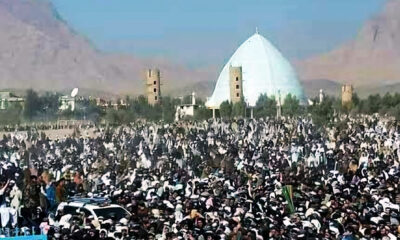Regional
Russia concerned about weapons abandoned by the West in Afghanistan
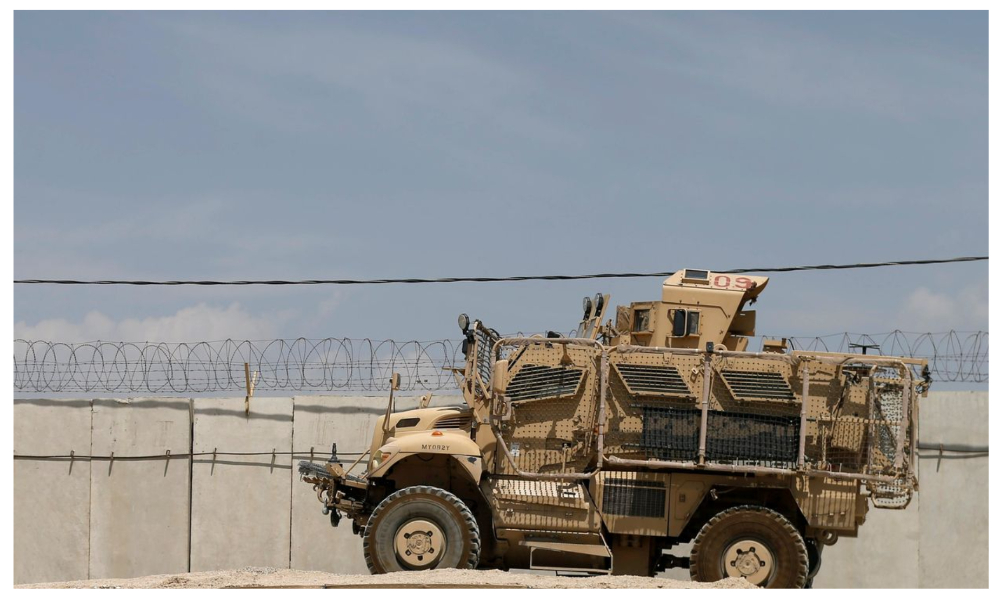
The large hotbed of instability in Afghanistan created by the West could spread to all countries of the region, Russian Security Council Secretary Nikolay Patrushev said on Wednesday at a meeting of regional countries on Afghanistan.
Patrushev explained that this was also due to arms “abandoned by the Western coalition in enormous amounts” when troops withdrew from Afghanistan.
“We are talking about more than a thousand armored vehicles and armored personnel carriers, dozens of aircraft and helicopters, hundreds of artillery pieces, mortars, anti-tank and anti-aircraft systems, as well as hundreds of thousands of heavy and light small arms worth tens of billions of dollars,” the security chief listed as reported by TASS news agency.
According to him, these weapons can be used both to intensify the armed struggle between intra-Afghan groups and sold on the black market, including to terrorists in third countries.
He said that Washington and its allies seek to maintain old and create new hotbeds of tension around the world.
“Uniting our efforts in solving security tasks is especially important at the current stage, when the US and its allies are pursuing policies aimed at maintaining old or creating new hotbeds of tension around the world,” he said.
According to Patrushev, one of these hotbeds is Afghanistan, where “over 20 years of the presence of Western military contingents, preconditions for long-term challenges and threats” to the countries of the entire region have been consistently formed.
“In particular, the West indulged in stepping up the activities of international terrorist organizations, first of all ISIS and al-Qaeda, which swelled its ranks thanks to fighters from Iraq, Syria and some other countries. We all remember quite well the unmarked helicopters that delivered weapons and ammunition to the ISIS mercenaries in the American airspace control zone,” he noted.
In addition, the Russian security chief recalled that the Americans had contributed to the growth of drug trafficking in Afghanistan. “Today the incumbent Kabul authorities are still reaping the fruits of the chaos left by the Americans, and the situation in the socio-economic sphere is rapidly deteriorating,” he summarized.
Meanwhile, Secretary of the Supreme National Security Council of Iran Ali Shamkhani said at the meeting that the crisis in Iraq, the creation of Daesh, as well as the conflict in Ukraine are results of US policies.
“Peace, stability and progress in Afghanistan are our priority, [the priority] of all those seated around this table. We believe and proceed from the fact that the presence of the United States destabilizes the region. Afghanistan confirms this. The events in Iraq, the creation of the Islamic State in the Levant region, and also, the events in Ukraine occurred as a result of arrogant actions by the United States. The people of Ukraine have fallen victim to US aims,” he said.
The fifth meeting of the secretaries of national councils from the countries of Central Asia, Pakistan, India and China on Afghanistan is taking place in Moscow on Wednesday.
Regional
Powerful quake in Southeast Asia kills several, Myanmar declares state of emergency
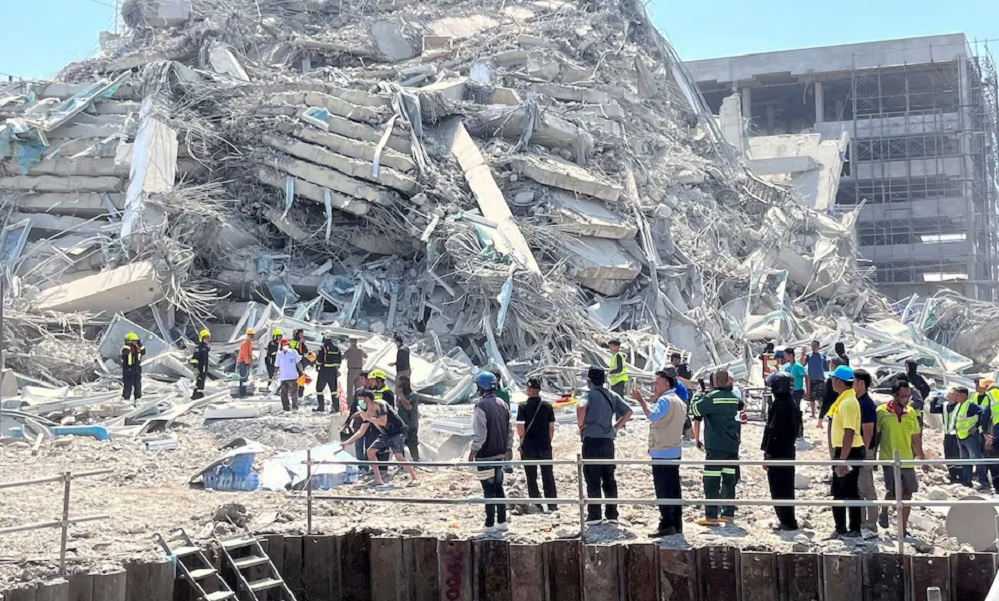
A powerful earthquake rocked Southeast Asia on Friday, killing several people, bringing down a skyscraper under construction in Bangkok and toppling buildings in neighbouring Myanmar, where the ruling junta declared a state of emergency in some areas.
At least three people were killed in the town of Taungoo in Myanmar when a mosque partially collapsed, witnesses said, while local media reported that at least two people died and 20 were injured after a hotel collapsed in Aung Ban, Reuters reported.
In Thailand, at least one person was killed and dozens of workers were rescued from under the rubble of the skyscraper that had been under construction in Bangkok, Thailand’s National Institute of Emergency Medicine said.
Bangkok’s city authorities declared the capital a disaster-stricken area, saying they needed to assess and monitor damaged areas, and assist people who might still be at risk.
In Bangkok, people ran out onto the streets in panic, many of them hotel guests in bathrobes and swimming costumes as water cascaded down from an elevated pool at a luxury hotel, witnesses said.
The United States Geological Survey (USGS) said the quake, which struck at lunchtime, was of 7.7 magnitude and at a depth of 10 km (6.2 miles). It was followed by a powerful aftershock.
The epicentre was about 17.2 km from the Myanmar city of Mandalay, which has a population of about 1.5 million.
Myanmar’s ruling military declared a state of emergency in multiple regions.
“The state will make inquiries on the situation quickly and conduct rescue operations along with providing humanitarian aid,” it said on the Telegram messaging app.
Mandalay is Myanmar’s ancient royal capital and at the centre of the country’s Buddhist heartland.
Social media posts showed collapsed buildings and debris strewn across streets in the city. Reuters could not immediately verify the posts.
One witness in the city told Reuters: “We all ran out of the house as everything started shaking. I witnessed a five-storey building collapse in front of my eyes. Everyone in my town is out on the road and no one dares to go back inside buildings.”
Another witness in the city, Htet Naing Oo, told Reuters that a tea shop had collapsed with several people trapped inside. “We couldn’t go in,” she said. “The situation is very bad.”
At least three people died after a mosque in Taungoo partially collapsed, two eyewitnesses told Reuters.
“We were saying prayers when the shaking started… Three died on the spot,” said one of two people who spoke to Reuters.
Local media reported a hotel in Aung Ban, in Shan state, crumbled into rubble, with one outlet, the Democratic Voice of Burma, reporting two people had died and 20 were trapped.
Video and images posted by Myanmar Now showed a roof cratered at a market in the capital, Naypyitaw.
In Mandalay, the outlet’s images showed a clock tower had collapsed and part of the wall by Mandalay Palace was in ruins.
China’s Xinhua news agency said strong tremors were felt in southwestern Yunnan province, which borders Myanmar, but there were no reports of casualties.
Witnesses contacted in Yangon, Myanmar’s largest city, said many people ran out of buildings.
OFFICE TOWER SHAKES IN BANGKOK
One office tower in downtown Bangkok swayed from side to side for at least two minutes, with doors and windows creaking loudly, witnesses said.
Hundreds of employees filed out via emergency stairs as some shocked and panicked workers froze. Loud shrieks could be heard as the building continued to sway.
Outside, hundreds gathered in the afternoon sun, while staff with medical kits found office chairs for the elderly and people in shock.
China’s Xinhua news agency said strong tremors were felt in southwestern Yunnan province, which borders Myanmar, but there were no reports of casualties.
Regional
Iran ready for indirect talks with US, Khamenei aide says
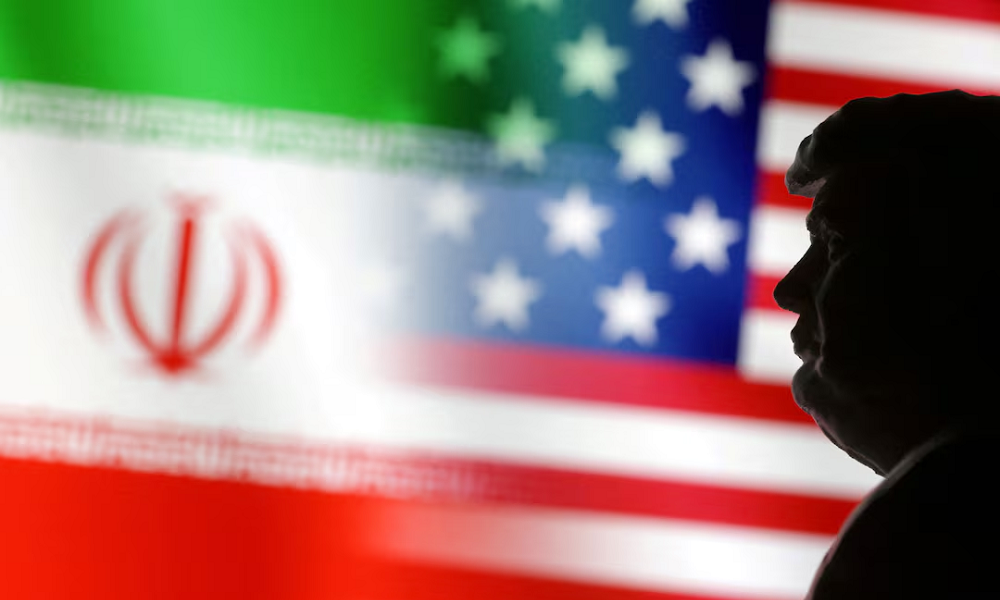
Kamal Kharrazi, an adviser to Iran’s supreme leader, said on Thursday Tehran has not closed all doors to resolve its disputes with the United States and is ready for indirect negotiations with Washington.
Tehran has so far rebuffed U.S. President Donald Trump’s warning it to make a deal or face military consequences. Supreme Leader Ayatollah Ali Khamenei called the message deceptive and Foreign Minister Abbas Araqchi said talks are impossible unless Washington changes its “maximum pressure” policy.
“The Islamic Republic has not closed all doors. It is ready for indirect negotiations with the United States in order to evaluate the other party, state its own conditions and make the appropriate decision,” Kharrazi said, according to the semi-official Iranian Students News Agency.
Iran is meant to soon reply to Trump’s letter, with Araqchi saying last week that Tehran would take into consideration both Trump’s threat and opportunities in its response.
In his first 2017-21 term, Trump withdrew the U.S. from a 2015 deal between Iran and world powers that placed strict limits on Tehran’s disputed nuclear activities in exchange for sanctions relief.
After Trump pulled out in 2018 and reimposed sweeping U.S. sanctions, the Islamic Republic breached and has since far surpassed those limits in its escalating programme of uranium enrichment.
Western powers accuse Iran of having an clandestine agenda to develop nuclear weapons capability by enriching uranium to a high level of fissile purity, above what they say is justifiable for a civilian atomic energy programme.
(Reuters)
Regional
Pakistan, China in talks about security for Chinese nationals
Chinese nationals have been targeted by separatist militants who believe Beijing is helping Pakistan exploit minerals in Balochistan
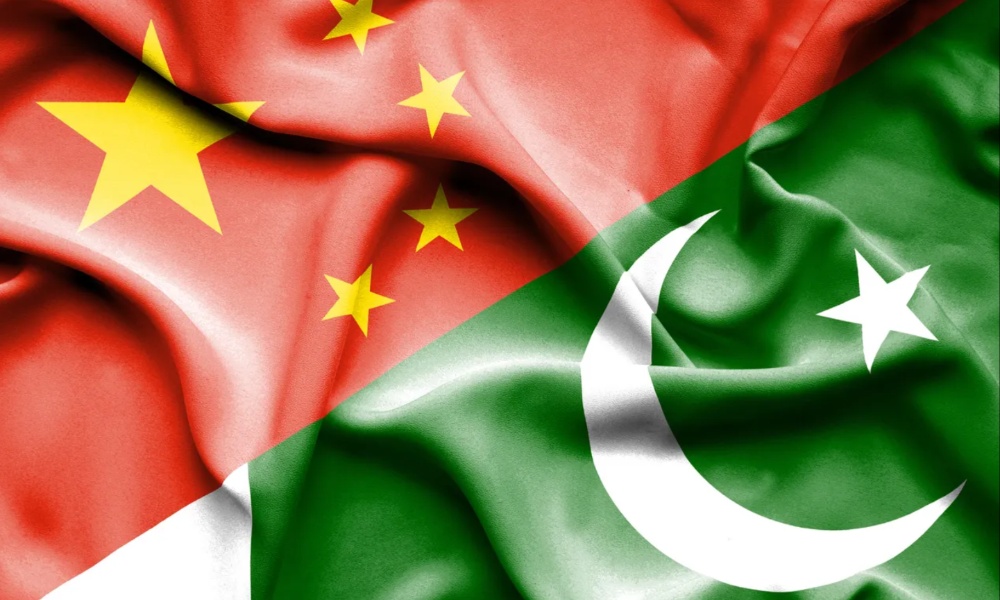
Pakistan and China’s discussions about security measures to protect Chinese nationals working in the South Asian country are a work in progress, Islamabad’s ambassador to Beijing said on Wednesday.
Chinese nationals have been in the crosshairs of separatist militants who believe Beijing is helping Pakistan exploit minerals in the underdeveloped southwestern province of Balochistan, where China has a strategic port and mining interests, Reuters reported.
It is Pakistan’s “national responsibility” and the country is “doing everything possible”, Ambassador Khalil Hashmi told reporters at the sidelines of the Boao Forum in China’s Hainan province.
“I think our two countries work very closely in terms of information sharing, in terms of developing the standard operating procedures” to ensure Chinese nationals working in Pakistan are safe, he said.
“We keep our Chinese friends informed of the steps that we are taking, so it’s a work in progress.”
Beijing has been pushing Pakistan to allow its own security staff to provide protection to thousands of Chinese citizens working there, frustrated by the string of attacks on its citizens.
The push came after a bombing at the Karachi airport last October killed two Chinese engineers who were returning there to work at a power plant.
Hashmi said those talks are ongoing, with a high degree of trust between both countries.
“It’s a complex security environment,” he said, “We have the capability to resolve, to counter and combat and defeat these terrorist forces.”
-

 Sport5 days ago
Sport5 days agoAfghanistan eliminated from Asian Beach Soccer Championship
-

 World4 days ago
World4 days agoSecretive Chinese network tries to lure fired US federal workers, research shows
-
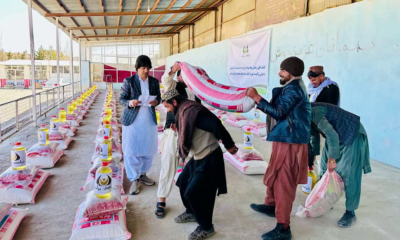
 Latest News5 days ago
Latest News5 days agoDozens of needy families in Ghazni get much needed food aid from Bayat Foundation
-

 Latest News4 days ago
Latest News4 days agoAfghanistan has the right to access Amu River’s water: Uzbek minister
-

 Sport5 days ago
Sport5 days agoAFC Asian Cup 2027 Qualifiers: Myanmar defeat Afghanistan 2-1
-

 Latest News3 days ago
Latest News3 days agoAmnesty international urges Pakistan to halt Afghan deportations
-

 Climate Change4 days ago
Climate Change4 days agoUN and ICRC warn of serious water shortage in Afghanistan
-

 Latest News3 days ago
Latest News3 days agoAfghanistan-Iran-Europe railway corridor activated




